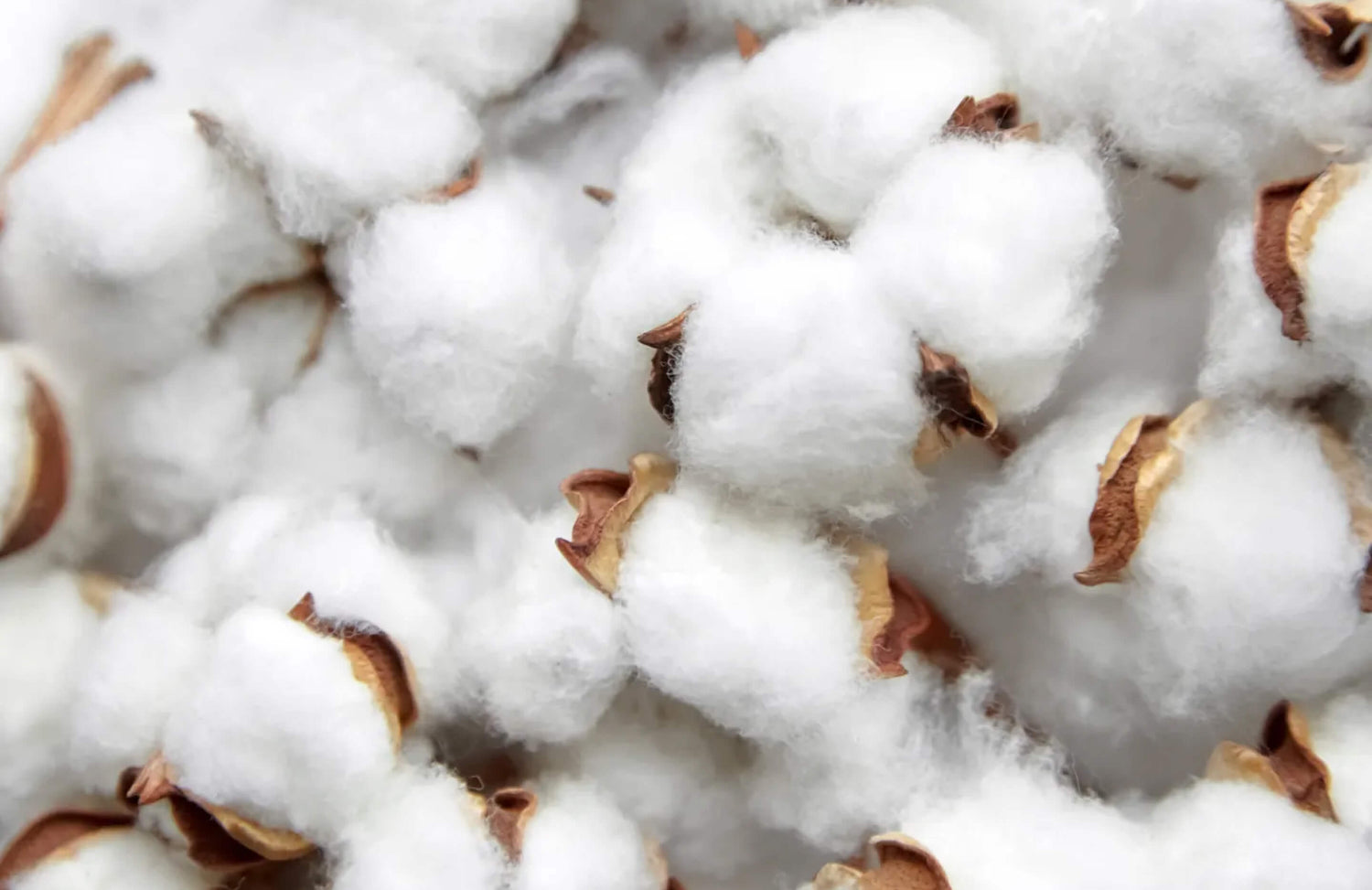Organic Cotton
Plant fibers are natural and renewable.

The Problem
We are conscious that relying on one plant fiber source can lead to over-reliance and promote the practices of monocropping. Monoculture plantations (monocropping) weaken the soil, deplete soil nutrients, reduce local biodiversity and increase the risk of pests. This happens with cotton on a global scale. Because of this, we are actively working to incorporate a more diverse range of materials, to help reduce the world’s dependence on cotton.
The Solution
We use non-food crop fibers that are responsibly grown, without the use of toxic pesticides.
We recognize, understand and promote the importance of using alternatives to conventional cotton. Conventional methods of cotton production involve the use of toxic pesticides, which infamously contaminate the runoff water, causing severe harm to the surrounding ecosystems (including plants, animals, microorganisms, and humans).
We acknowledge that growing organic cotton does require more water and land space than conventional cotton, however 95% of this water is rain-fed, which protects non-renewable groundwater and surface water resources. We do not use virgin, non-organic cotton.
We’re currently testing different fiber combinations to achieve a biodegradable and durable material, made exclusively from plants. Stay tuned—when this fabric is ready we’ll let you know here, first.
Discover our Organic Cotton Items
View all-
365 Midweight Hoodie
$125 -
365 Midweight Hoodie
$125 -
-
365 Midweight Hoodie
$125



